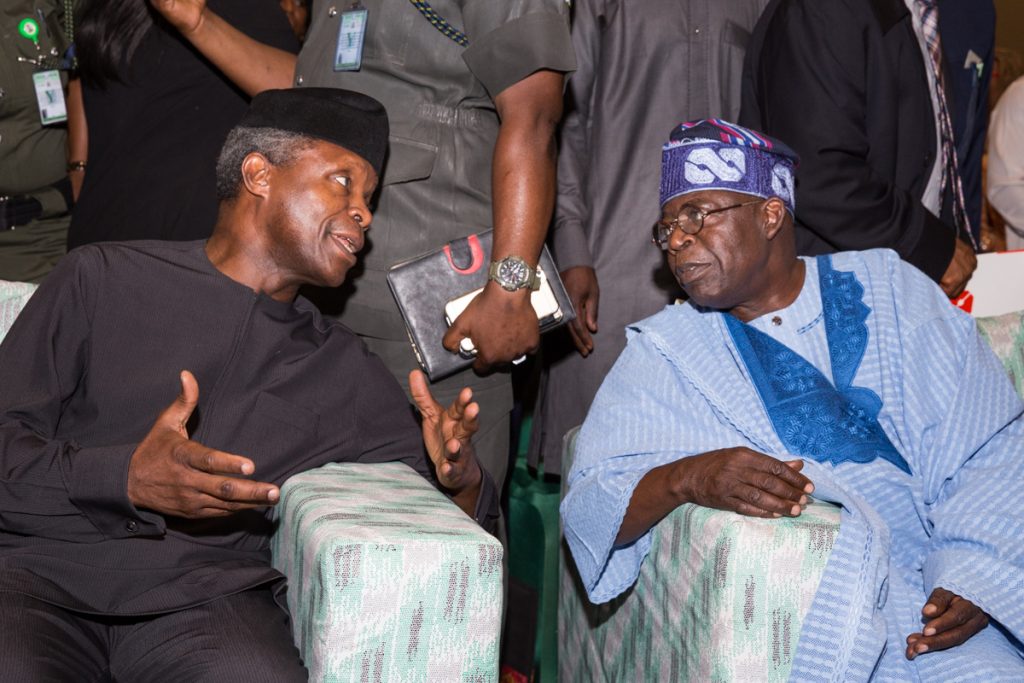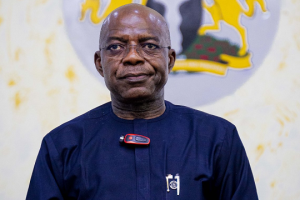
Former Nigerian Vice President Yemi Osinbajo has urged President Bola Tinubu to take decisive action to alleviate the economic hardships faced by Nigerians, calling for focused efforts to address the nation’s mounting food insecurity and rising cost of living.
Osinbajo expressed deep concern over the growing financial strain on families and the impact of escalating prices on ordinary citizens, especially children.
In his address at the 2024 Women in Management, Business, and Public Service (WIMBIZ) conference, Osinbajo emphasized that the government’s primary responsibility is to improve citizens’ well-being, particularly in times of economic struggle. He called on President Tinubu to prioritize policies aimed at providing relief and stability to Nigerians who are feeling the weight of inflation and rising prices for essentials.
Osinbajo pointed out the need for comprehensive social welfare programs designed to support the most vulnerable. He specifically recommended the implementation of measures that make basic needs such as food, healthcare, and housing more affordable and accessible for all citizens. According to him, these initiatives are essential for reducing the economic burden on the average Nigerian household and helping people meet their daily needs.
“The cost of living has become overwhelming, and it’s straining Nigerians’ hope for a stable future. Many families are struggling, and children especially are bearing the effects of the rising prices of food and other essentials,” Osinbajo stated. He stressed that it is crucial to act promptly to prevent further hardship, saying, “We need to build stronger social safety nets that ensure basic needs are met, even in challenging times.”
Further, Osinbajo voiced concern about Nigeria’s literacy issues, particularly in the northern region, where over 67% of women lack basic reading and writing skills. He warned that without addressing these educational gaps, national development would remain stagnant. “A country where a significant portion of the population is economically and socially sidelined due to illiteracy will find it hard to achieve sustainable growth and development,” he warned.
He underscored the critical role education plays in shaping Nigeria’s future and argued that reducing illiteracy, particularly among women, is essential for economic progress. “Investing in education and empowerment initiatives not only improves individual lives but also strengthens communities and the economy,” he said. According to Osinbajo, widespread literacy and accessible education are foundational to creating a Nigeria where everyone has the opportunity to thrive.
To address these barriers, he proposed large-scale social intervention programs aimed not only at boosting literacy rates but also at promoting economic empowerment and reducing social inequality. Osinbajo highlighted that empowering women and other marginalized groups would have a profound effect on the nation’s overall prosperity. “We must invest in education and provide opportunities for economic independence, particularly for women. This is a critical step toward building a fairer, more prosperous Nigeria,” he added.
He concluded by urging the government to view these social and economic challenges not as isolated issues but as interconnected barriers that must be addressed together. By focusing on welfare, education, and economic empowerment, he believes Nigeria can create a more equitable society. Osinbajo’s address at the WIMBIZ conference served as a powerful call to action for Nigerian leaders and policymakers, advocating for a comprehensive approach to overcoming the nation’s challenges and improving the lives of all Nigerians.





